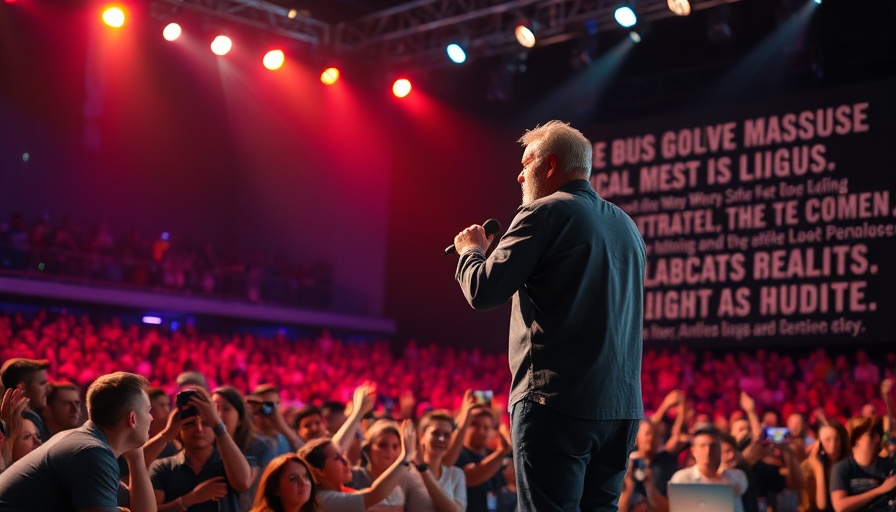
The Controversial Comments at Glastonbury Festival
The Glastonbury Festival, known for its diverse music acts and cultural significance, recently became the center of a heated discussion following rapper Bobby Vylan's performance. Vylan led festivalgoers in chants of “free, free Palestine” and “death, death to the IDF” during his set, prompting a public outcry and official scrutiny. British police have initiated a review of the incident, examining videos to determine whether a criminal investigation is warranted.
Government Response and Public Reaction
Health Secretary Wes Streeting condemned Vylan's comments as “appalling” while also criticizing the Israeli response to ongoing violence in Gaza. This dual approach to the issues at hand reflects a broader conversation in the UK about how freedom of expression intersects with sensitive geopolitical topics. The Israeli Embassy expressed its concern over what it labeled inflammatory rhetoric, showcasing the strained relations between cultural expression and diplomacy.
Festival's Stance on Hate Speech
In response to the chants, Glastonbury Festival organizers emphasized their commitment to maintaining an inclusive environment. They issued a statement asserting that Vylan's remarks “very much crossed a line” and reminded performers of the festival's zero-tolerance policy toward antisemitism, hate speech, and incitement to violence. The festival is known for its eclectic performances and as a platform for social activism, but this incident raises questions about the boundaries of protest within artistic spaces.
The Cultural Impact of Music Festivals
Music festivals like Glastonbury serve as a microcosm of societal issues, often reflecting the political climate. With around 200,000 attendees each year, artists wield significant influence over public discourse. This incident with Bob Vylan highlights the power musicians have to provoke thought and inspire debate, yet it also brings the potential for backlash. The conversations stemming from performances can echo beyond the festival grounds, penetrating media narratives and public perception.
Historical Context: Music as a Platform for Political Expression
Historically, music has long been a vehicle for political commentary. Iconic musicians from Bob Dylan to Public Enemy have used their art to address societal issues, often becoming catalysts for change. This tradition continues today, as artists leverage their platforms to advocate for causes they believe in. However, Vylan’s comments illustrate the fine line between passionate advocacy and offensive rhetoric, an area that often invites scrutiny in the digital age.
Future Predictions: Where Will This Lead?
As discussions surrounding the balance of artistic freedom and accountability grow in response to this incident, it is evident that festivals and performing artists may face increased pressure in the future. Regulatory scrutiny could influence how music festivals curate their line-ups and manage performances, specifically regarding politically charged content. How the industry adapts to these challenges will shape the landscape of live entertainment moving forward.
The Importance of Engaging with Diverse Perspectives
Understanding the motivations behind expressions of solidarity, as seen in Vylan's statements, requires a nuanced approach to cultural and political convictions. There is an undeniable value in acknowledging diverse perspectives, especially on contentious issues. Engaging in constructive dialogue allows communities to bridge divides and foster respect while navigating complex subjects like the Israel-Palestine conflict.
As audiences and artists grapple with the implications of speech at public events, the key lies in promoting a culture of understanding that respects freedom of expression while recognizing the potential impact of inflammatory language. This incident is a reminder that art can inspire action, reflection, and sometimes controversy—elements that are crucial to the ongoing conversation about advocacy and performance.
Ultimately, for attendees of events like the Glastonbury Festival, how one engages with the material—both musically and politically—can enhance the festival experience, turning it into a platform for deeper understanding and collaboration.
 Add Row
Add Row  Add
Add 






Write A Comment